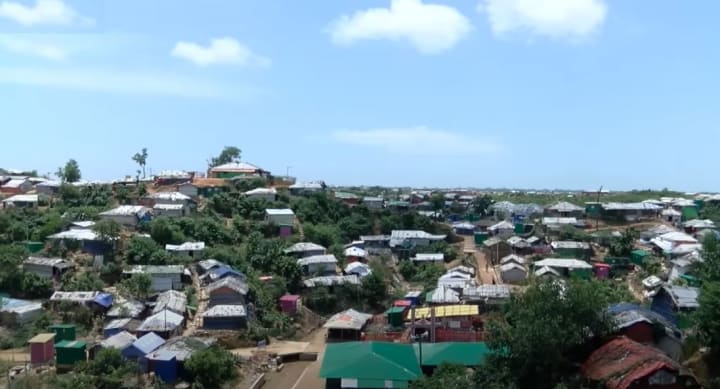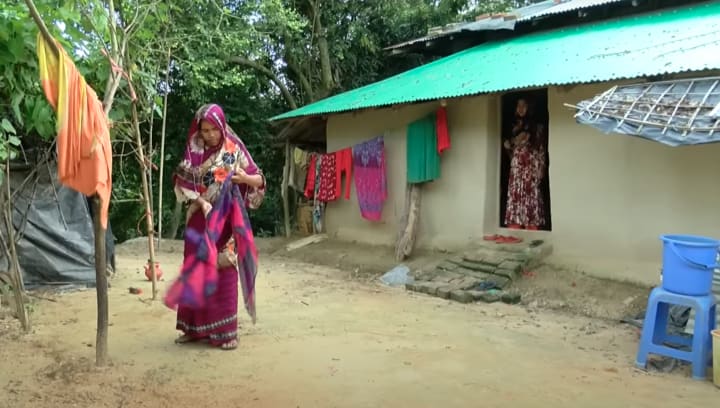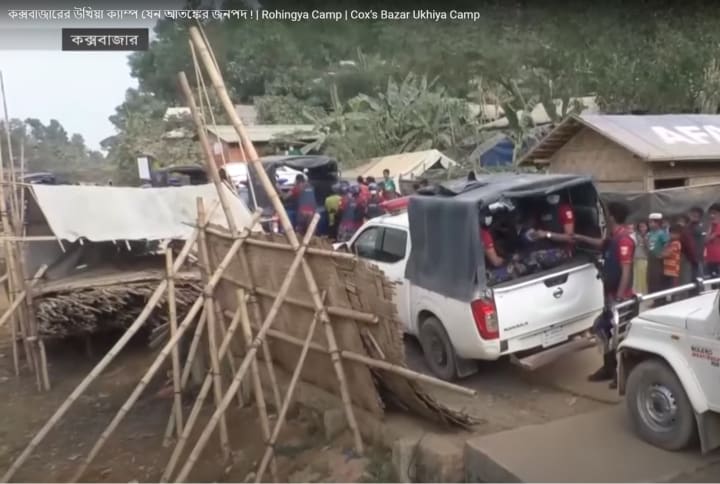7 years of the Rohingya crisis
How are relations with local Bangladeshis?

August 25 marks the 5th anniversary of the massive influx of Rohingya's from Myanmar into Bangladesh in 2017.
At first, there was some uncertainty about the entry of Rohingya's persecuted by the country's military forces in Myanmar's Rakhine, but Bangladesh decided to give shelter to the Rohingya's very quickly.
At that time, the local residents of Cox's Bazar helped the Rohingyas in various ways.
Rohingya camp near Abdur Rahman's house in Balukhali in Cox's Bazar. When the Rohingya came in 2017, he thought it might be temporary.

But even after seven years, there is no sign of them going back to Myanmar. Thinking about the future, Abdur Rahman's face is only disappointed.
"We have never imagined that the Rohingya's will suddenly come and sit here. We have not even thought about it" - said Mr. Rahman
He said, "It's been five years today but the decision to repatriate the Rohingya's has not yet come. If they stay like this for another five years, our future will suffer a lot."
Changing Ukhia-Teknaf
Ukhia in Cox's Bazar is a town that has changed in the last five years. There is no way to understand that these places were once surrounded by mountains and forests. Bangladesh has sheltered millions of Rohingya who fled from Myanmar in these places.
When the Rohingyas came, Momtaj Begum gave up her yard to shelter them. Now his house is surrounded by Rohingya settlements.

"Before the Rohingyas came, there were six acres of land. I planted trees there. Now the Rohingyas have built houses on those lands," said Momtaj Begum.
"I let the house be built in the hope that they would leave. Now they are not leaving."
The labor market in Ukhia and Teknaf has also changed since the arrival of the Rohingyas. They are doing various kinds of work out of the camp.
As a result, it has become difficult for local Bangladeshis to find work.
The main reason for this is that the labor of Rohingyas is cheaper than that of Bengalis.
Local people complain that the Rohingyas are receiving food and other forms of assistance from various international aid agencies. As a result, they have no difficulty even if they give labor at a low price.
How is the Bangladeshi-Rohingya relationship?

In the last Seven years, various types of criminal activities have been increasing within Rohingya communities.
According to police information, there have been about 2,000 cases centered on Rohingya camps in the last seven years.
These cases have been filed for various crimes including murder, arms and yaba smuggling.
There is concern and fear among Bangladeshis about the way crime is increasing.
After all this, the local Bangladeshis are seeing the Rohingya?
Rohingya woman Mahda Khatun said, "Bengalis have never tortured us. If they were not good, how could I have come here from Burma?"
Although seven years have passed, there are no signs of the Rohingyas moving to Myanmar, although there is anger and frustration among the local people, it does not show much in their behavior.
Rather, they have a normal relationship with the Rohingyas.
Abdur Rahman runs a medicine shop outside the Rohingya camp. He was saying that the relationship is mainly business.
"Hundred percent of us are Rohingya customers. There were no people here before. As such, our relationship with the Rohingyas is not bad," said Mr. Rahman
Rohingyas now outnumber Bangladeshis in Ukhia and Teknaf.
Many Bangladeshis consider themselves a 'minority' in the region in terms of population.
That is why many people say that even if they are not close to the Rohingyas, there is no way to avoid them. That's why it's better to maintain a normal relationship
Sarwar Alam, a local resident, said, "They are the majority now and we are the minority. When they are coming into our society, into the union - we cannot avoid them."
"You have to get along with them even if you don't have a deep relationship."
Rohingyas will return to Myanmar - repeated assurances from the government, but local residents are no longer willing to believe it.
They are demanding that until the crisis is not resolved, international organizations should provide food and other assistance to them like the Rohingyas.
Besides, they also claim that locals are given priority in the employment of non-governmental organizations working in that area.






Comments (2)
Great work! Fantastic job!
Presenting the diversity of Bangladeshi life to the world